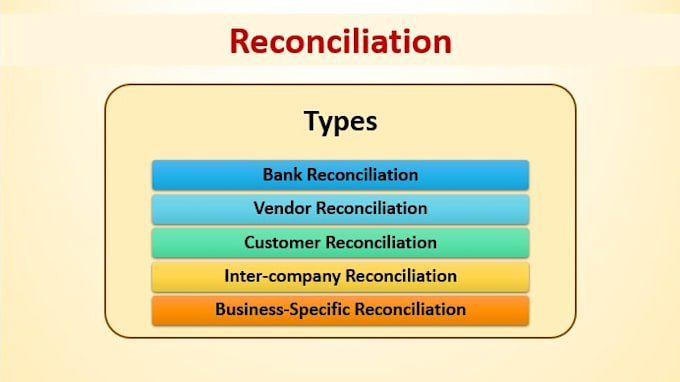A Step-by-Step Guide to Starting a Business as a Kid: Legal, Practical, and Parent-Backed Strategies
Introduction: Why Kids Should Start a Business
Starting a business as a young person is more than a way to earn money-it’s an opportunity to learn real-world skills, build confidence, and develop responsibility. Many successful entrepreneurs began their journeys before adulthood, and with the right support and information, you can turn your idea into a thriving business. However, there are essential legal and practical steps to follow, especially since minors face unique rules around contracts, finances, and management [2] [3] [5] .
Step 1: Find the Right Business Idea
Begin by brainstorming what you’re passionate about and what skills you have or want to learn. Many kid-owned businesses start with simple services like dog walking, lawn mowing, tutoring, or selling crafts online. Think about what problems you can solve or what products you can offer that people in your community might want. Consider your available time, resources, and any help your family can offer. For inspiration, research stories of young entrepreneurs who have built successful ventures from small beginnings [5] .
Step 2: Write a Simple Business Plan
Writing a business plan helps you organize your thoughts and set clear goals. Your plan doesn’t have to be complicated. Include:
- Mission statement : Why does your business exist? What values does it represent?
- Products or services : What are you selling? Who will buy it?
- Marketing plan : How will people learn about your business? Will you use flyers, social media (with a parent’s consent), or word of mouth?
- Financial plan : What are your expected costs? How much will you charge? What are your goals for profit?
Creating a business plan gives you direction and helps you explain your idea to adults who may need to support or approve your business [5] .
Step 3: Talk to Your Parents or Guardians
As a minor, you’ll need your parent’s or guardian’s help to make your business legal and manage certain aspects, like signing contracts or opening a bank account [1] [5] . Discuss your plan with them and ask for their support. They can help you:
- Research local laws and business requirements
- Sign paperwork and contracts on your behalf
- Help you open a business bank account (they may need to be the authorized signer)
- Advise on taxes and recordkeeping
Involving your family early ensures you have the support you need and helps avoid legal or financial issues later on [1] .
Step 4: Understand the Legal Requirements
Business laws for kids vary by location, but most states and cities require businesses to secure certain permits and licenses-even for simple ventures like lemonade stands or babysitting [2] [4] . Here’s what you should do:
- Check with your city or county’s business office (usually at City Hall or the revenue/finance department) for local requirements.
- If your business will make products or handle food, ask about health and safety permits.
- For online or larger businesses, explore whether you need to register a legal structure, such as a Limited Liability Company (LLC). While minors can own businesses in some states, parents usually must sign as organizers or authorized signers [1] [3] .
- Ask your parent or guardian to help with contracts and banking, since minors often cannot sign legal documents themselves [1] .
It’s important that your business follows all rules to avoid fines or being shut down. Cities and neighborhoods sometimes close down stands or small businesses if they don’t have the proper paperwork [4] .
Step 5: Set Up Finances and Taxes
Managing money is a critical part of business. Even as a kid, you may need to pay taxes if you earn more than a certain amount, usually $400 or more in profit. Parents should help keep track of income and expenses, and talk to a tax professional if the business grows [2] .
- For a simple cash business (like mowing lawns), keep a notebook or spreadsheet of your earnings and costs.
- If you want to open a bank account for your business, your parent or guardian will likely need to be the official signer.
- Ask your parents to help you set aside money for taxes, if needed.
Remember, paying taxes is part of running a legal business. Your parents can help you contact a tax advisor or accountant if you start making more money [2] .

Source: riset.guru
Step 6: Promote and Grow Your Business
Marketing is about letting people know what you offer. For kids, start with:
- Telling friends and family about your business
- Using flyers or posters (with permission)
- Creating simple business cards
- If allowed, working with your parent to set up a basic website or supervised social media page
Always get your parent’s approval before posting online, since many platforms have age restrictions and require parental consent [5] . Partnering with local community centers or schools can also help you reach more customers.

Source: meninthehead.com
Step 7: Problem-Solving and Overcoming Challenges
Starting a business as a kid comes with unique challenges. Common issues include:
- Not being able to sign contracts or open accounts on your own-solve this by involving a parent or guardian from the start [1] .
- Understanding complicated rules-ask adults, teachers, or local business groups for advice.
- Balancing school and business-create a schedule and make sure your business doesn’t interfere with your studies.
If you face obstacles, remember that many successful entrepreneurs started young and found creative ways to overcome barriers. Don’t hesitate to seek help from adults or local business organizations.
Alternative Approaches and Resources
If your local laws make it hard for minors to start a business, there are still options:
- Your parent can form the business legally and list you as a co-owner or active participant [1] [3] .
- You can join youth entrepreneurship programs at schools or local community centers.
- Ask your school counselor or librarian to help you find local workshops or mentorship programs for young business owners.
- For online business ideas (like selling crafts or digital products), check the minimum age requirements on platforms and always partner with your parent for supervision [5] .
To find out exactly what you need to do in your area, visit your city or county’s official website or call the business licensing office for detailed steps.
Conclusion: Start Small, Dream Big
Launching a business as a kid is an exciting way to learn and grow. With careful planning, family support, and an understanding of the legal requirements, you can build a business that’s both fun and rewarding. Remember to seek advice, stay organized, and embrace each challenge as a learning opportunity. Whether you’re mowing lawns, selling crafts, or inventing something new, your entrepreneurial journey can start today with the right steps and support!
References
- [1] Northwest Registered Agent (2022). How to Help Your Kid Register an LLC.
- [2] Business News Daily (2023). How to Help Your Kid Start a (Legal) Business.
- [3] Bizee (2024). Learn If, When, and Where A Minor Can Own a Business.
- [4] CorpNet (2023). How to Start a Business as a Kid or Teen.
- [5] Shopify (2025). How To Start a Business as a Kid: Guide for Parents and Kidpreneurs.



